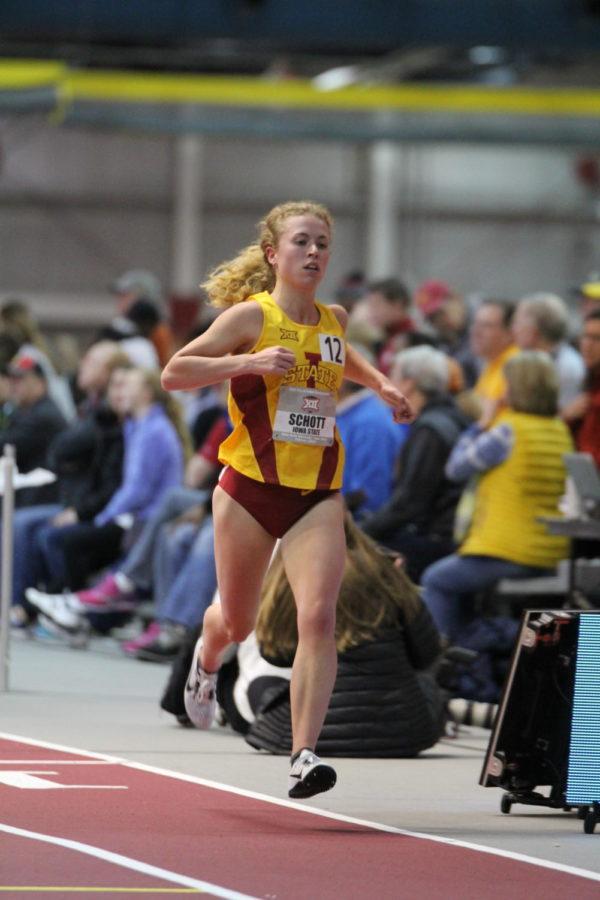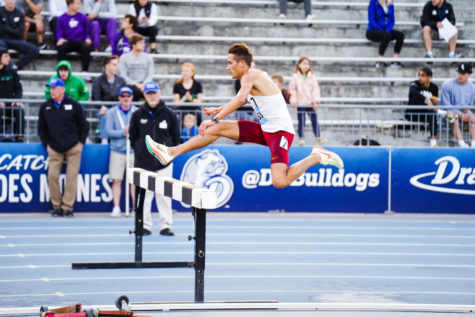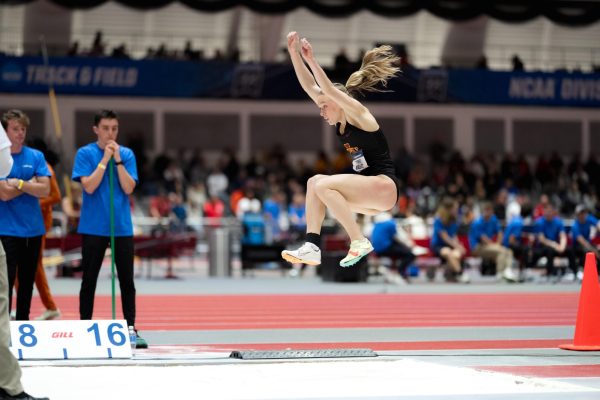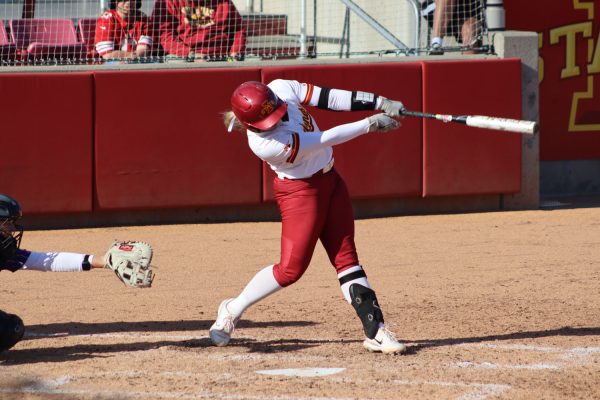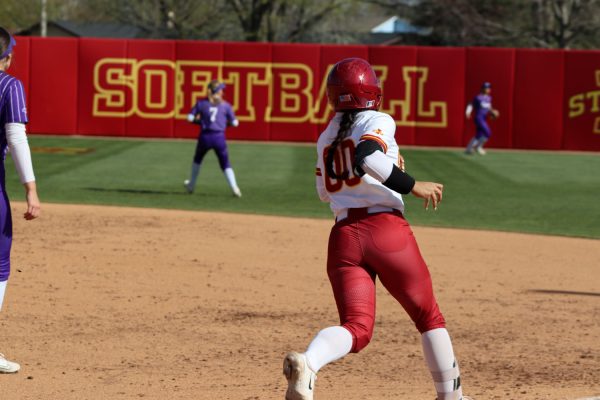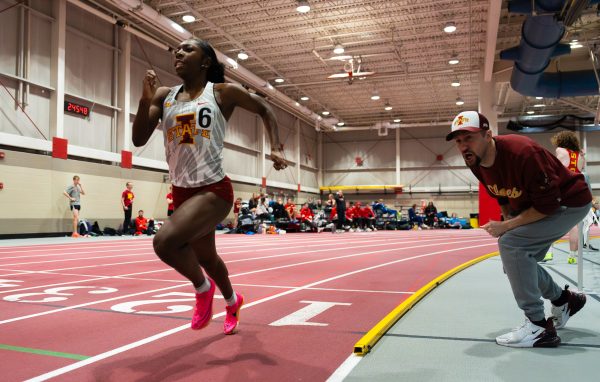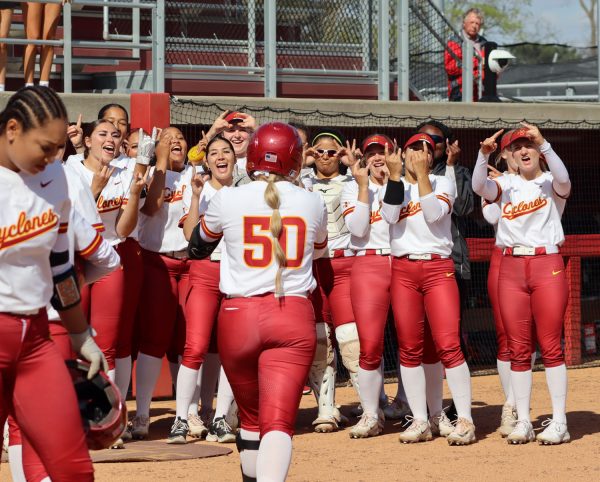Iowa State distance runners always have running mindset
Sophomore Megan Schott runs in the women’s 5000-meter Feb 24 during the Big 12 Track and Field meet. Schott came in 16th with a time of 16:57.765.
March 22, 2017
As second-year distance runner Megan Schott begins looking for an internship, there is a list of criteria she has to first check: Where can I train? Do I have access to trails? Do I have access to all the necessary equipment? And do I have access to trainers who can help with any potential injuries?
With anything she does, running is her top priority.
“It’s like a full-time job,” Schott said. “I’ll call my parents every once in a while and say, ‘I found this job opportunity, it has really flexible hours. … I could help pay rent because they’re helping me pay for college right now, which I really appreciate.
“And they’re like, ‘No. You have a job. Your job is to run.’”
The sport overtakes the Iowa State women’s distance runners’ afternoons, usually from 2 p.m. to 6 p.m. every day, and that doesn’t include morning training.
Some of the runners who have class at 8 a.m. have to get up as early 5:30 a.m. to get their routine in.
“Your time isn’t really your own,” Schott said. “That’s what we all signed up for, so it’s not really a problem for us because we’re all in.
“… We get one day off a week, but we’re still running on those days, so most girls don’t get any days off really. I get a day off maybe every month.”
Forget taking trips, unless there’s a treadmill readily available in the winter, and trails nearby during the spring and summer.
This spring break was no different for the Iowa State distance runners.
“Spring Break was super grind time,” Schott said. “We had a lot of time off from school, and [coach Andrea Grove-McDonough] was like this is a great time to get in good workouts.”
Schott’s teammate, Kelly Naumann, said most of the distance runners on the team are running between 60 and 80 miles each week.
Collegiate distance running is unique because there is no offseason throughout the academic year. Cross-country runs from the beginning of the school year through mid-November, indoor track meets begin in December or January and last until mid-March, and outdoor track begins immediately after the indoor season ends, lasting into the summer months.
The cross-country season consists of longer and more distance-oriented workouts, and the runners all work together toward the same race distance. In indoor and outdoor track, they are broken up into different training groups because everyone trains for different events.
“I think it actually helps that we are always in season because you always have something that you’re looking forward to,” Naumann said. “There’s always something a couple weeks away, so there’s really no time to slack off or get distracted.”
Whereas many other sports only have one season with several months away from competition and longer time to wait to achieve their goals, distance runners always have goals that are within a month.
“I feel like that definitely helps, but it does get tiring at the end of the season when you’ve gone cross-country, indoor and outdoor just to stay motivated and keep your foot on the gas, as coach says,” Naumann said. “It starts to get a little tedious, but that’s when you have your teammates to tell you, ‘Hey, we’re doing the same thing too.”
For the distance runners on the team, seeing the progress keeps them motivated.
“You have your bad races, but those good races are the ones that are like, ‘OK, I want to work hard,’” Schott said. “Seeing that progress, seeing those physical changes throughout your training, I think is the most significant source of our motivation.”
While distance running is the first priority, Schott, who is majoring in community and regional planning, also has had to focus on school and finding an internship this summer.
She has applied for one in Oregon and has already begun sending emails trying to find a place to live and someone she can train with.
“And when will I leave? Will I be here for the regional meet, or will I have to leave before the regional meet? Because that won’t work,” Schott said. “And I have to be here at the first of August, so it’s like I have this very small window of time to intern.”
Sounds like a mess.
“It is a mess, but a fun mess nonetheless,” Schott said.

